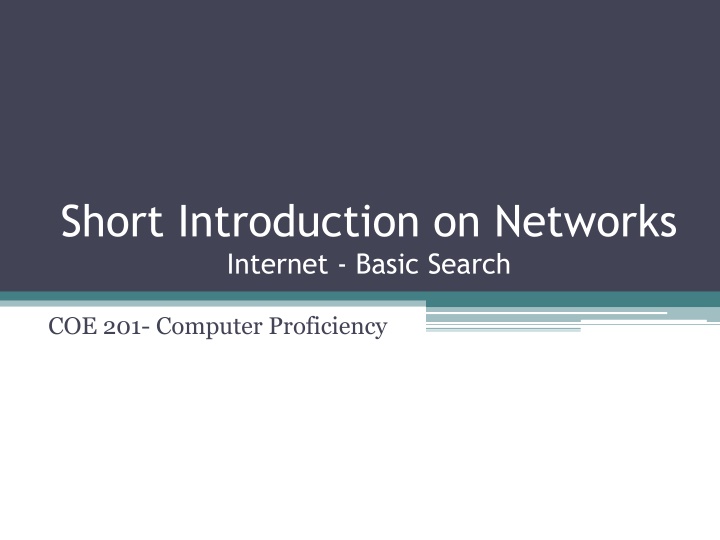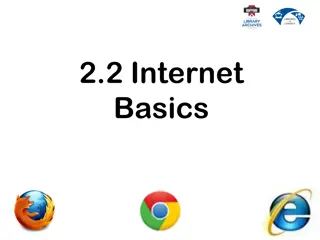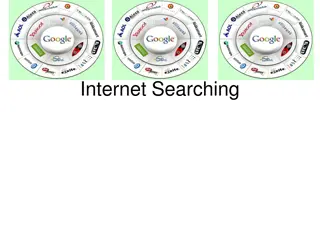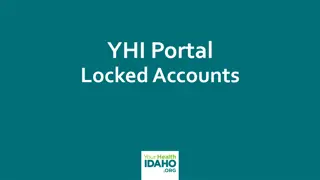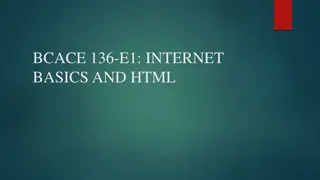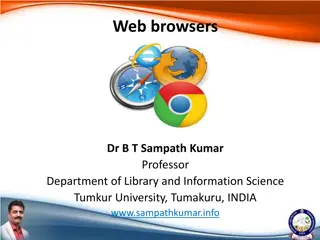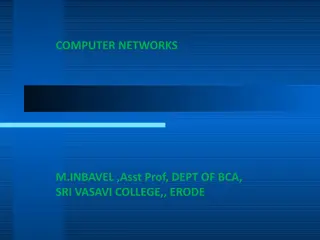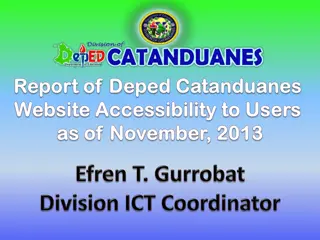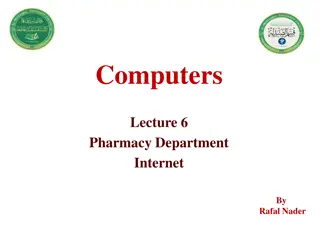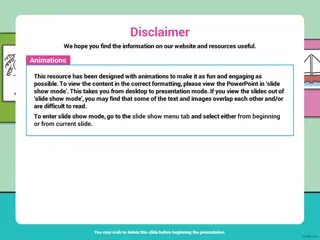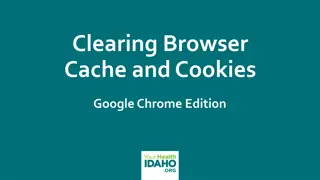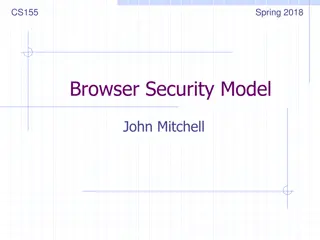Introduction to Internet Basics and Web Browsing
Exploring the fundamental concepts of networks and the internet, this overview covers key elements like IP addresses, DNS, protocols, web browsers, and more. Understanding these basics is essential for navigating the online world effectively.
Download Presentation

Please find below an Image/Link to download the presentation.
The content on the website is provided AS IS for your information and personal use only. It may not be sold, licensed, or shared on other websites without obtaining consent from the author.If you encounter any issues during the download, it is possible that the publisher has removed the file from their server.
You are allowed to download the files provided on this website for personal or commercial use, subject to the condition that they are used lawfully. All files are the property of their respective owners.
The content on the website is provided AS IS for your information and personal use only. It may not be sold, licensed, or shared on other websites without obtaining consent from the author.
E N D
Presentation Transcript
Short Introduction on Networks Internet - Basic Search COE 201- Computer Proficiency
Outline Internet Basics Web Browser IP Address DNS Protocols Firewall Proxy Search Engines Search Optimization
Internet Basics URL Uniform Resource Locator Unique address of any web document/page Also called domain name or internet address Is entered in the address bar in your browser To Browse Or to surf follow links in a page/ discover websites and their content. Usually used like "I browse some sites" or "I'm surfing on the net". Downloads A download is a file you have transferred from another computer to your computer over the internet. Links Aka Hyperlink Links one electronic document to another
Web Browser Aka browser Makes the content on the internet viewable Converts the data coming from the internet to the graphical interface you see. Displays all elements of a website at their designated positions. Example: Internet Explorer (IE) Mozilla Firefox Google Chrome Opera Safari
Web Browser Browser s basic components: Address Bar: Most important part of your browser. You can enter all domain names you want to visit in it.
Domain Name Part of URL, between www. and the first / In case of http://www.google.com/search... , google.com is the domain name. has a suffix indicates for what purpose this domain is used. Every country has also a specific suffix. Because the Internet is based on IP addresses, not domain names, every Web server requires a Domain Name System (DNS) server to translate domain names into IP addresses.
The DNS Domain Name System or Service or Server (DNS) DNS Use .com Commercial (business) .lb Lebanese websites .us U.S. websites .info Informational websites .org Organization .edu Educational organization .gov Government Agency
The DNS (continued) Services
Protocols (Continued) Protocols are languages that computers use to communicate with each other. A dialed computer should be able to talk the dialing computer s protocol. Protocol = Language
Typical Protocols Protocol Name Usage HTTP Browsing web pages FTP Downloading/ Uploading files SMTP Sending e-mail POP3 Receiving e-mail Telnet Remote access IRC Chatting
Question! What happens from the moment you type an address in your browser window till the moment the page appears?
The Firewall Its mission: Protects your computer(s) or network from the outside attacks.
The Proxy With a firewall, no one can get in BUT NO ONE can get out!!! Firewall Solution: The proxy is a door in the firewall Inside Outside
Search Engines Three types of search engines: Human-powered Crawler Based Hybrid NOTE: No search engine has more than 40% of the total websites available online!!
Search Engines (continued) Human -powered: Depends on humans for its listings You submit a short description to the directory for your entire site A search looks for matches only in the descriptions submitted. Changing your web pages has no effect on your listing Crawler-Based: Such as Google They "crawl" or "spider" the web create their listings automatically, then people search through what they have found. you change your web pages they find these changes change your listing.
Search Engines (continued) "Hybrid Search Engines" Or Mixed Results Search engines used to either present: crawler-based results human-powered listings. Today both types of results are presented.
How to Search? + To search for two or more terms on the same page. Type + between the terms Refers to AND Example: sun + heat OR To search for either of two (or more) terms on the same page Type the word OR between the terms Example: sun OR heat - : To search for pages that include the first term and not the second Type - between the terms Example: sun -heat
How to Search?(continued) To search for an exact phrase Enclose the phrase in quotation marks Example: sun heat effects ( ) To group parts of your search Enclose them in parenthesis Example: sun + (heat OR burn) This will return pages with both the words sun and heat or both the words sun and burn. * To search for various forms of a word Add an asterisk to the end of the word Example: sun* This returns pages with the words sun, sunglass, sunburn, sunrise
Optimizing your search Let s try some Google queries: Keywords Results chocolate + cake 93,700,000 chocolate OR cake 1,350,000,000 "chocolate cake" 25,200,000 "cake chocolate" 2,190,000
